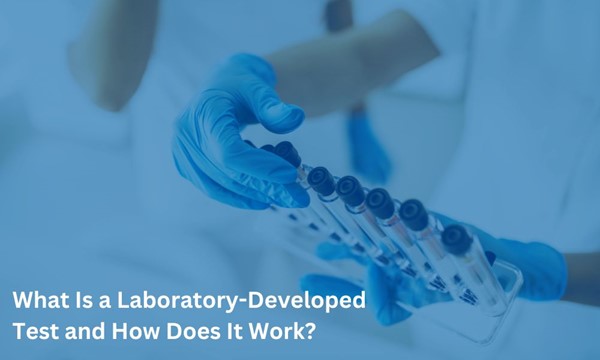Laboratory-developed tests (LDTs) are a powerful tool for in vitro diagnostics. Your clinical lab can develop and perform its own validated LDTs to provide proper patient care. Read on to find out more about lab developed tests and how they work.
Commercial Tests vs. Lab-Developed Tests
Most laboratory tests are commercially manufactured and marketed to multiple labs. However, some tests are developed, validated, and performed within one particular laboratory; these special tests are called laboratory developed tests. The originating lab does not distribute or sell LDTs to other labs or healthcare facilities.
Board-certified medical professionals develop and use these tests for patient care. LDTs can provide insight that leads to diagnosis or informs patient treatment.
Reasons To Create an LDT
One of the most common reasons a lab creates an LDT is that a commercial test is not currently available. One instance of this is when a lab establishes an LDT to perform tests for a rare disease. When a small portion of the population has a disease, manufacturers have a reduced incentive to develop a commercial test.
Another reason to create an LDT is because an existing commercial test doesn’t apply to a particular subpopulation from which the lab has patients. A lab can modify the test to make it applicable to a specific situation. When a lab modifies an FDA-approved commercial test in any way, the test is considered an LDT and is subject to regulations applied to all LDTs.
Regulation
Laboratory developed tests adhere to standards created by governmental and non-governmental regulatory entities. From development to validation, labs must meet high standards before using test results to guide patient care.
As with commercial tests, the Centers for Medicare and Medicaid Services (CMS) regulates and evaluates LDTs to ensure reliable test results pursuant to CLIA. Labs must demonstrate how well an LDT performs based on many criteria, including accuracy, precision, and test sensitivity.
To understand regulatory requirements, it’s important to first understand what a laboratory developed test is and how it works. Generally, LDTs do not require FDA clearance or approval before use because they are subject to enforcement discretion.
However, in vitro diagnostics that are not LDTs must comply fully with medical device regulations. Understanding whether a test qualifies as an LDT depends on multiple factors, including the test’s components.
As the nation’s leading medical lab consulting firm, Lighthouse Lab Services has the industry expertise to ensure your lab’s regulatory compliance. Our comprehensive clinical lab services provide support and guidance as you grow and run your clinical lab.
Contact us today to get started with a free consultation.

MAY WE USE A RESEARCH USE ANTIBODY (RUO) IN A (LTD) FOR PATIENT DIAGNOSIS AND REPORTING.OR
IF A REGULAR FDA APPROVED ASSAY CAN CALL (LTD) DUE TO THE USE OF A RESEARCH USE ANTIBODY(RUO).
Hi Haseeb, that would be a question we’d want more information on before answering. You can reach out to us directly by emailing info@lighthouselabservices.com.